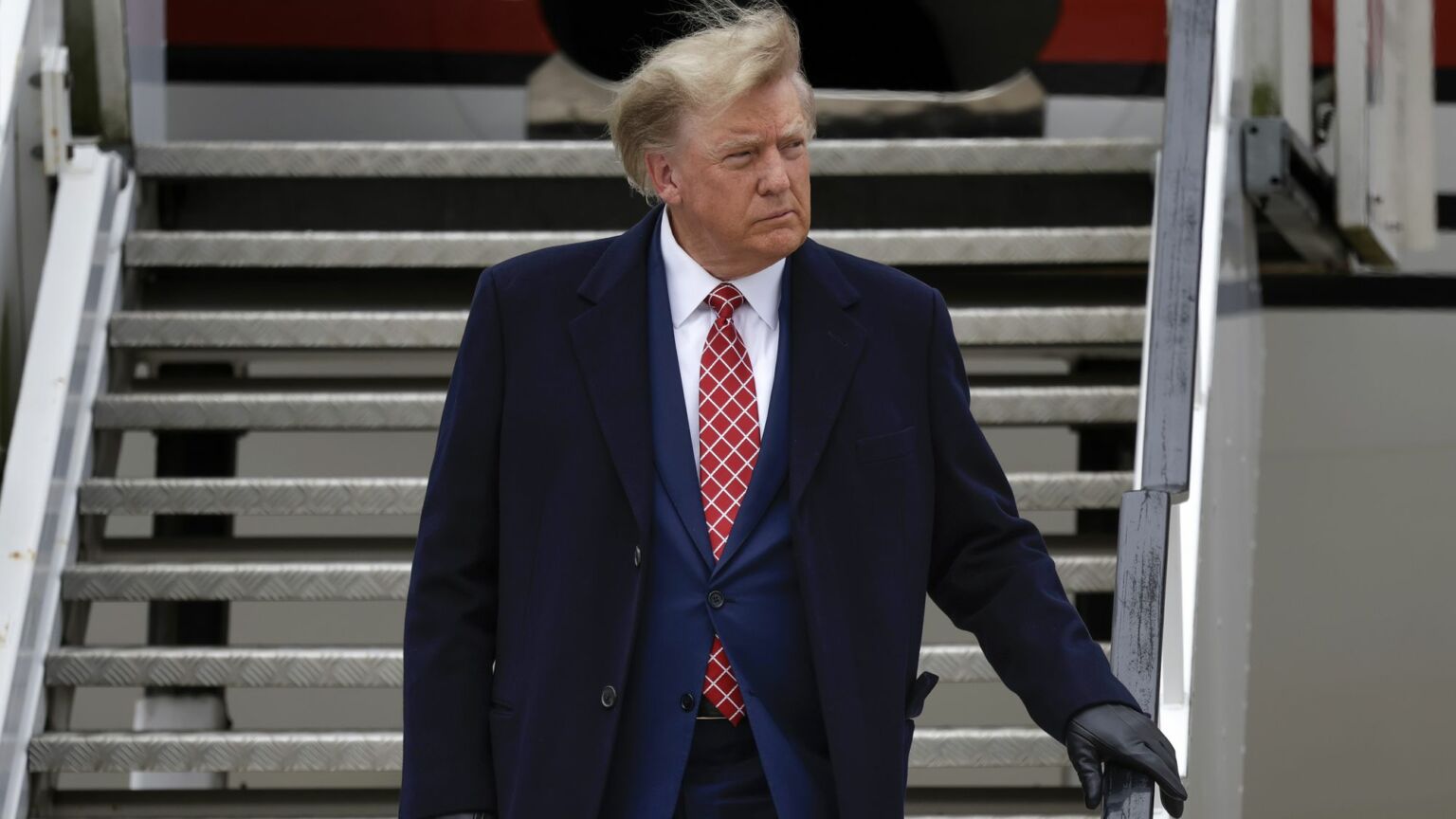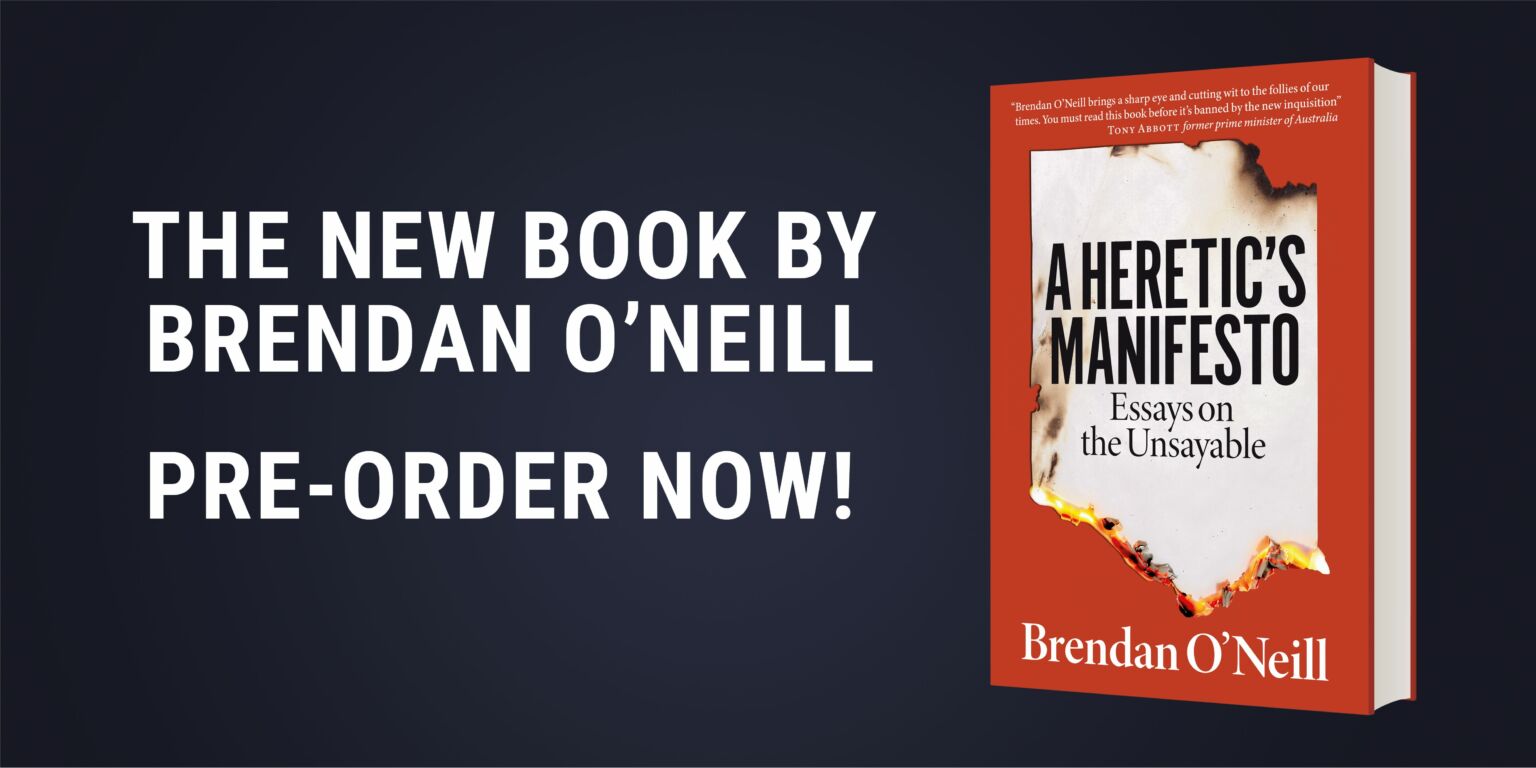The FBI is a danger to democracy
By obsessing over ‘Russiagate’, it let its anti-Trump prejudices get ahead of the truth.

Want to read spiked ad-free? Become a spiked supporter.
We already knew that the claim Russia colluded with Donald Trump to win the presidency in 2016 was false. Multiple investigations, including the Mueller report, have revealed as much.
So we didn’t really need a 306-page report from special counsel John Durham to tell us again that Russiagate was little more than a smear campaign. But Durham’s report, published earlier this week, is nevertheless shocking. It shows how the Federal Bureau of Investigation (FBI) was actively involved in perpetuating the Russiagate hoax. It reveals how it undertook a multi-year investigation of Trump that it knew was groundless. And it exposes the extent to which the FBI worked with the Hillary Clinton campaign to spread lies about Trump’s ties to Russia in order to bring down the president.
In a democracy, we rely on security services like the FBI to remain politically neutral. But in the case of Trump and Russiagate, the FBI was politically partisan and abused its power. It effectively allowed itself to become a political weapon for the Democrats.
It seems FBI agents were motivated to investigate by a ‘prejudice against Trump’, writes Durham. Leading investigators, including former agent Peter Strzok, and former FBI attorneys Lisa Page and Kevin Clinesmith, demonstrated ‘pronounced hostile feelings’ towards Trump. In published text messages from 2016, Page asked Strzok, ‘He’s not going to become president, right? Right?!’ ‘No. No, he’s not’, Strzok responded, ‘we’ll stop it’.
One of Durham’s bombshells is that the FBI had no basis for opening its ‘Crossfire Hurricane’ investigation into links between Trump associates and Russian officials and spies in July 2016, just months before the November election. The FBI lacked ‘any actual evidence of collusion’ between Trump and Russia, and instead relied on ‘raw, unanalysed and uncorroborated intelligence’. The agency was so eager to nail Trump that it violated its normal standards and assessment process. Indeed, Durham found that in 2016, FBI officials ‘discounted or willfully ignored material information that did not support the narrative of a collusive relationship between Trump and Russia’.
In July 2016 – the same month that Crossfire Hurricane operation began – the government received intelligence that Hillary Clinton had approved ‘a proposal from one of her foreign-policy advisers to vilify Donald Trump by stirring up a scandal claiming interference by the Russian security services’. In early August, CIA director John Brennan told President Obama, attorney general Loretta Lynch and FBI director James Comey about the dirty tricks being planned by the Clinton campaign. Brennan’s warning should have made the FBI sceptical of claims of Trump-Russia collusion. But it didn’t. Instead, it seemed to spur the FBI on in its own attempt to ‘vilify’ Trump.
In October 2016, the FBI made its first application to the Foreign Intelligence Surveillance Court (FISC), seeking authorisation to begin surveillance of the Trump campaign. The main evidence it presented to the court was the infamous Steele dossier, which consisted of numerous lurid, false claims about Trump, and had been commissioned – as the FBI suspected even then – by the Clinton campaign itself. Within the bureau there was ‘some concern that Steele had been hired by a law firm on behalf of the Clinton campaign and the Democratic National Committee to conduct opposition research on Trump’, a senior FBI official told Durham. Yet, as the Durham report states, the FBI did not reveal to the court that it strongly suspected the dossier had been financed by Trump’s political opponent. The report adds: ‘The failure to provide this information to the FISC was a major omission in that the information clearly had the potential to affect the analysis of any bias in Steele’s reporting.’
In sum, the FBI was warned that the Clinton campaign was hatching a Trump-Russia collusion scandal and it had evidence that the Steele dossier was tied to the Clinton campaign. And yet despite being aware of all this, it still used this very dodgy dossier to justify spying on the Trump campaign.
Durham reveals that even after the FBI learned conclusively that the Steele dossier was false, it continued to use it. In January 2017, Igor Danchenko, a Russian political analyst and the primary source for the Steele dossier, told the bureau that the information was based on rumour and speculation. Despite this knowledge, the FBI continued to present the dossier as evidence in three more surveillance applications to the FISC. Former director Comey would continue to reference the dossier in interviews.
In contrast with its zeal to investigate Trump, the FBI protected Clinton from scrutiny. As Durham shows, the bureau refused to look into her mishandling of classified information, which involved keeping emails on her private server. It also had evidence that foreign governments were donating to either the Clinton campaign or the Clinton Foundation, but didn’t pursue this potential foreign interference in an election. According to one agent, the FBI was ‘“tippy-toeing” around [Clinton] because there was a chance she would be the next president’.
As we know, this joint Clinton-FBI hit job on Trump failed to remove him from office. But it did plenty of damage. It cast a cloud over Trump’s presidency right from the start, and sidetracked his administration for more than half of his four-year term. Many Democratic Party voters today still believe that Trump was illegitimately elected.
It is outrageous that the FBI interfered in and undermined democracy in this way. Yet for now, the repercussions will be limited. Durham notes the injustice of the FBI’s behaviour and suggests the rot runs deep, but he does not recommend criminal prosecutions. ‘The law does not always make a person’s bad judgement, even horribly bad judgement [a crime]’, he writes.
This refusal to recommend launching a criminal investigation into the FBI’s actions has given the Democrats and their media friends an excuse to ignore the Durham report. Move along, nothing to see here, seems to be their approach.
And the FBI itself appears unrepentant. In response to Durham, the bureau claimed that it has already ‘implemented dozens of corrective actions’ that would have prevented the ‘missteps’ that occurred in 2016. By describing its actions as ‘missteps’, the FBI shows that it is not taking Durham’s account of its corruption seriously.
Indeed, the FBI seems to think that there is nothing fundamentally wrong with its actions and behaviour. Hence it has actually become even more involved in the political process since 2016. Having a law-enforcement agency behave in such a partisan way is a sign of the banana-republicanisation of the US. Consider how the FBI colluded with Twitter to suppress free speech, in particular, over the Hunter Biden laptop scandal. Or how the FBI has refused to respond to Congress regarding allegations of bribes to Joe Biden. Or how the FBI has gone after disgruntled parents who speak at school-board meetings, or has threatened pro-life activists.
Given the FBI’s role in the Russia-collusion hoax, and its other interventions in political life, little wonder it’s lost the trust of many Americans.
Durham shows in stark detail how the FBI teamed up with Clinton and the Democrats to try to undermine Trump. The FBI’s house needs clearing out, in terms of both personnel and practices. Congress needs to take action and put these jumped-up bureaucrats back in their rightful place.
Sean Collins is a writer based in New York. Visit his blog, The American Situation.
Picture by: Getty.
Who funds spiked? You do
We are funded by you. And in this era of cancel culture and advertiser boycotts, we rely on your donations more than ever. Seventy per cent of our revenue comes from our readers’ donations – the vast majority giving just £5 per month. If you make a regular donation – of £5 a month or £50 a year – you can become a and enjoy:
–Ad-free reading
–Exclusive events
–Access to our comments section
It’s the best way to keep spiked going – and growing. Thank you!










Comments
Want to join the conversation?
Only spiked supporters and patrons, who donate regularly to us, can comment on our articles.